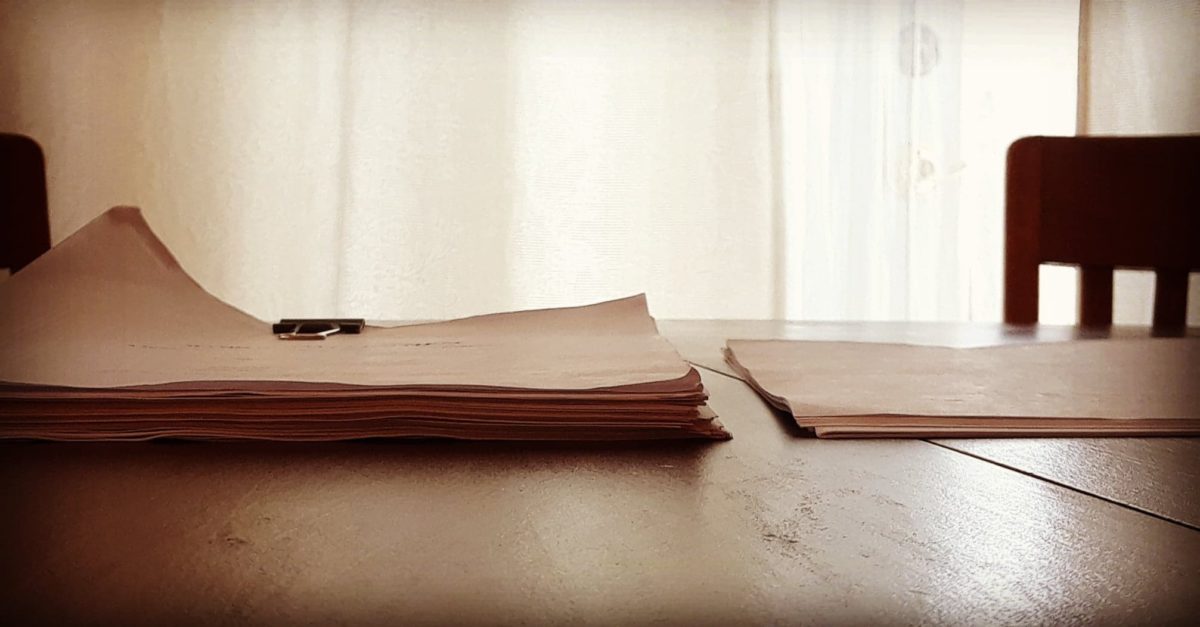Last week I was dogged by a head cold for the first time since 2017. Somehow, in my personal accounting of health and illness, that stomach flu in December 2019 doesn’t count as “sick,” since those symptoms don’t mimic the actual plague.
I only vaguely knew about the at-home antigen test kits, because, as my children are fond of reminding me, I live under a rock. Which is true. I work from home and minimize my outings. I never stopped wearing a mask, and when I do go out, I double it up. I socialize unmasked with only one family aside from my own. It did not occur to me that I could even contract a cold, nor that I might want to keep a home test kit on hand.
So as soon as I started feeling punky, I looked for an appointment at a drive-through CoVid-19 test site. I had to wait three days for the earliest opening and another three days for the results.
In the wee hours of Thursday morning, it finally came through: Negative.
I let my children know that we were on for Family Dinner Night on Saturday, and I alerted the pals I’d seen in person in the last few weeks. The post-nasal drippage and ear congestion were distracting, but the vague sense of unease about the possibility of putting people I love at risk for the plague…. Ugh. Concentrating on my work, on anything, was challenging.
On Wednesday I canceled an in-person appointment because that result was not yet in. One appointment. How do people who are working out in the world, facing this unease every single day—how do they do it?!
One of my chums said something about paranoia having its place in the world, but that it’s good to have resolution. (I am assuming he did not mean actual paranoia. Because, rude.)
Somehow, that little exchange reminded me of a story my dad told us ages ago. He flew for United Airlines “when they didn’t suck,” from, I think, the 1960s until his early retirement in the 1990s. I’ve been thinking about my father, generally, because my son just started his job as a commercial pilot, days before his birthday—so the theme for our October Family Dinner Night was full-on airline.
By the time he was a senior pilot, my dad flew the Seattle-Hong Kong flight a couple times a month. The runway, if I recall correctly, ran parallel to the bay and next to a mountain—so the approach was risky. One time my dad had to land that beast in a typhoon. (Was it a 777? A 747? No idea. My son would know these details, but they drop out of my brain.) I distinctly remember that my dad’s face turned grey as he told us about it.
“That sounds absolutely harrowing!”
“It was. I just kept thinking, I will not be responsible for the deaths of 387 souls.… I will not be responsible for the deaths of 387 souls.…”
Okay. That number is wrong. But he did say a precise number, and I wish I could remember it. The specificity seems important. Despite his many flaws, my father took seriously the fact that it was up to him to keep those people alive.
Few of us are responsible for the lives of hundreds of people on any given day. Health care workers, maybe? Pilots, yes. Me? No. Also: How I could be the child of an airline pilot and have birthed one is beyond my comprehension. Shoot. I don’t even like to be a passenger, and the thought of actually flying one of those tubes in the sky…. No, thank you. I prefer to travel at walking pace—bicycle if I’m feeling wild.
And Mortal Peril, the only time I’ve been truly at risk of actual death—those blood clots were generated by my own body. Not contagious.
Although there are no guarantees, and we all meet the same ultimate fate, I’ve lived a relatively risk-free life. I am responsible mainly for, as my son used to say, my very own self. Last week made me realize that despite the fact that my connections are few, we are still and always connected. And I would be very sorry, indeed, if I had spread the actual plague to anyone I love. After several days of pondering the nature of paranoia versus that general unease of not knowing, plague or not-plague, I’ve landed here—concern for loved ones is kindness.
Family Dinner Night was loads of fun. I found the dusty LEGO airplane out in the garage, still mostly assembled but the engines and front wheel had fallen off. Inside, we found tiny passengers, still snapped into their seats, twenty years later.
“Worst flight ever.”
Sort of like this plague.
Let’s keep each other safe, okay?













